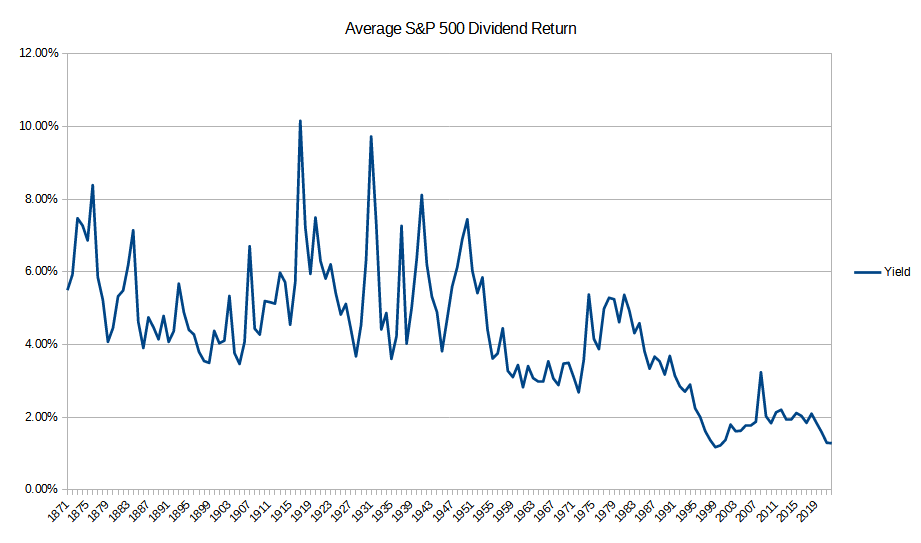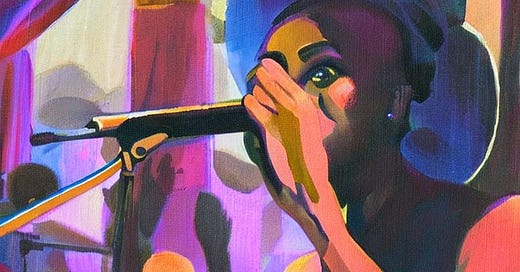Music NFTs Part 1: Why Buy Them?
I think music NFTs are the most asymmetric bet in the digital asset space. My top 5 reasons for buying music NFTs.
We're going to go deeper on music "non-fungible tokens" (NFTs) this week. I think music NFTs are possibly the highest potential upside investments in the entire digital asset space. I like music NFTs more than Bitcoin from here. I like music NFTs more than I like metaverse tokens or gaming tokens from here. I really believe music NFTs are going to radically change the entire music industry distribution model. The reason why I decided to make this a series is because of the breadth of what I'd like to cover. You might already have a handle on what NFTs are. But if you aren't really sure, check out this post I wrote last summer.
This conversation that was sent to me by a friend, though hilarious, is an over simplification. Names were blurred to protect the innocent:
Person A: Can somebody for the love of god explain to me what the actual fuck nfts are and how they work
Person B: Imagine you have a wife and your wife is getting drilled by everyone and you can't do shit. But you have the marriage certificate. That's the NFT
Close enough.
Anyway, if you haven't read my most recent music NFT articles, you may want to check out this one and this one before continuing. In this series, I'm going to tell you which platform I like the best as a buyer. I'm going to share two artists who I think are terrific and whose NFTs offer massive asymmetric bets as digital asset speculations. I'm going to share how I mine for data when I weigh purchase decisions. But before we get to all of that, I'm going to explain why anyone would even consider buying music NFTs. I see five core reasons.
Collectible appreciation
This is probably the most straight forward reason that people can understand with a simple analog. Collectible appreciation is the main bet in the NFT space at this point. People who are buying jpegs are doing so, mainly, because they think someone else will pay more for them later. This is the most basic speculative concept to understand. Number go up! And to be clear, this isn't a new phenomenon. We've been doing this with music for years. It's easy to find first press vinyl in marketplaces like eBay that have asks that are several hundred dollars. Collectible asset appreciation is the easiest music NFT concept to understand but it's by far the least exciting to me.
Royalty share
This is the most exciting component of music NFTs to me because it actually turns the NFT into a passive investment vehicle rather than a "number go up" speculation. Tomorrow, Royal.io will be dropping not one but two Nas NFTs that will allow fans (or investors) to essentially stake Nas and benefit monetarily from his fan engagement with his music. This, to me, is what is going to set up the future of music streaming and we'll get into that a little bit more in part 5.
But to emphasize how this actually could be a passive investment vehicle, lets think about some of the data from my article last week. Given what streaming data we had from Spotify and what Spotify's estimated share of the streaming market is, I speculated that it would take 6 years to get to passive profit in Nas' "Ultra Black" gold tier NFT. Now, that speculation is based off Nas's streaming performance from the last 18 months in aggregate. What I don't know right now is the trend trajectory of those streams. In all likelihood, the monthly streams of "Ultra Black" are probably declining because Nas has released two newer albums since dropping that track.
But let's say it takes 20 years to get back the initial investment in that NFT. That essentially puts Nas's Ultra Black NFT on par with a 5% dividend stock. Any idea how long it's been since the S&P 500 averaged a 5% dividend yield?

If you guessed the early 1980's without looking, congrats! Mind boggling, right? We have the Federal Reserve to thank for all of this. Don't forget that... Regardless, you could actually argue that it makes more sense for value investors to buy Nas NFTs than to it does to buy the S&P 500 at a 29 PE. Let that sink in.
Support artists more directly
Another reason to buy music NFTs is to just support artists more directly. This is something that I think will ultimately be massively beneficial to the art itself. Imagine a musician crowdfunding a new album's production directly through their existing fanbase rather than through a label. This is possible with NFTs. You might be thinking, "cool, Mike, you can already do that with a digital mp3 sale rather than an NFT on a blockchain." That is true. But the blockchain is important for two reasons. Piracy and future engagement.
It would be really easy to sell an mp3 version of an album through something like Bandcamp. But that's a one time deal. More importantly, after buying an mp3 through Bandcamp, there's nothing really stopping the buyer from creating copies of that mp3 and then sharing the copies with friends and family. The blockchain eliminates the pirating problem. It also means that people who own the digital token (NFT) can be air dropped special assets like new releases or show tickets. And this is where it gets really exciting because once you own the NFT, you're essentially claiming a stake on the artist's future community. Maybe the artist goes another direction with their projects and you lose interest but somebody else wants in. You can sell out. That's the beauty of the NFT.
Invest in unknown artists
We've all been there before. We find an unknown singer or band and we're among the first to recognize how good they are. We were fans long before the masses. Then the masses catch on and that special relationship is gone. You're just another fan. I've been there. Multiple times actually. I knew of Lupe Fiasco long before he was landing Grammy nominations. I had XV's cell phone number before he signed with Warner Brothers. There are other examples but you get the point. And you probably have a few examples of your own.
There's nothing wrong with finding an artist or band before everyone else does. We want these people to be successful. But selfishly, when it actually happens, we might feel like we lost something special. Maybe some sort of edge over our friends or something like that. There's something about having knowledge of a "secret" that makes you feel like you have some sort of status recognition. When your favorite underground artist gets discovered, suddenly it's more difficult to get tickets to shows. Maybe you had a line of communication with that artist that gets severed when they make it big. It can be traumatic.
NFTs can change that. How? Because now when you buy the NFT, it's like buying access to an exclusive club. That's why everyone is going bonkers over the Bored Ape Yacht Club. It's not because the art is so amazing. It's fine. Bored Apes are now a status symbol. It's an internet flex being able to use your ape as your Twitter avatar. Owning limited NFTs of artists before they blow up is like having a verifiable "early membership" card. And as I mentioned in the previous section, maybe that membership card comes with perks. Maybe a new fan who wasn't there at the beginning wants those perks and will pay a premium for them. NFTs make that kind of return on time investment possible.
Ownership over renting
This is something that I think isn't terribly understood by younger music fans. There was a time when people actually bought music. We definitely don't do that anymore. Did you know, that 84% of music revenue comes from streaming?

Physical copies account for roughly 10%. But nobody buys digital downloads. Like, at all. And honestly, why bother if you're a consumer? If you're already paying for iTunes, Spotify, or Amazon Music, you can pretty much play anything any time you want. The only justifiable reason to buy a digital version of a song is if you're going out of your way to support an artist in the current ownership/royalty structure. So unless you're doing that, and it would seem that most are not, you're basically just paying for a service. That service is entirely reliant upon a third party and the current distribution setup continuing in perpetuity.
It doesn't have to be this way. When I was in high school, I generally bought a CD every couple weeks. I'd say I probably spent $30 to $40 per month on music. Clearly, there's no need to do that anymore because I can pay $10 for Spotify each month and get access to everything! That works great for consumers. I'm not sure it works great for artists given how many streams it takes to get to $1 in revenue on all of these popular streaming platforms.
And again, it's third party reliance. What if Spotify goes out of business? What if I'd been a paying member of Spotify for 5 years and it suddenly goes away? At $10 a month, that would be $600 spent on music with nothing to show for it. I have no CDs. I have no mp3s. I have start over. Maybe there's another streaming service. Maybe there isn't because the whole distribution system collapsed. Likely? Not today. But never say never.
Coming Up
Tomorrow I'll be comparing four different music streaming NFT platforms and sharing interesting metrics for each. I'll tell you which one I'm aggressively buying NFTs on. On Wednesday I'll highlight my absolute favorite artist on this platform. On Thursday I'll make the case for another very high upside artist. And on Friday I'll share over a dozen NFTs that I myself have purchased on the platform. And I'll detail what I see happening to the streaming music industry in the next ten years that positions NFTs very well for the future.
The remaining parts of this series will be for paid members only. Luckily, I'm running a new special to coincide with this series. 25% for the next 5 days only. I think music NFTs are the most asymmetric bet in the digital asset space. If I'm right, the information I'm going to share this week will be worth its weight in (digital) gold. Just go for it…





Thanks for the article! I'd be interested in what your take is on Music-specific NFT marketplaces such as NFT (for example Sonido https://www.sonido.io/)? Would love to read an article on that.
One question that I haven't seen addressed with NFTs, music, jpg or any kind: why do they have any value at all?